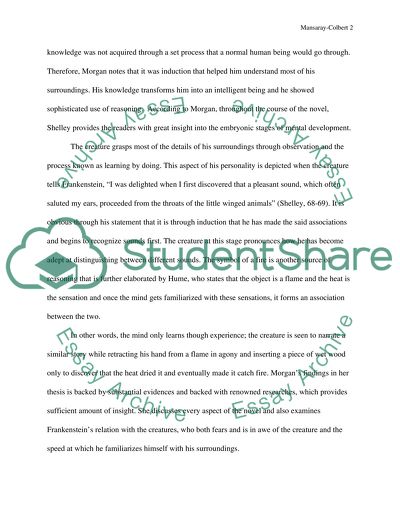Inductive Reasoning in Frankenstein Essay Example | Topics and Well Written Essays - 750 words. Retrieved from https://studentshare.org/english/1473351-frankenstein-critical-analysis-evaluation-essay
Inductive Reasoning in Frankenstein Essay Example | Topics and Well Written Essays - 750 Words. https://studentshare.org/english/1473351-frankenstein-critical-analysis-evaluation-essay.


